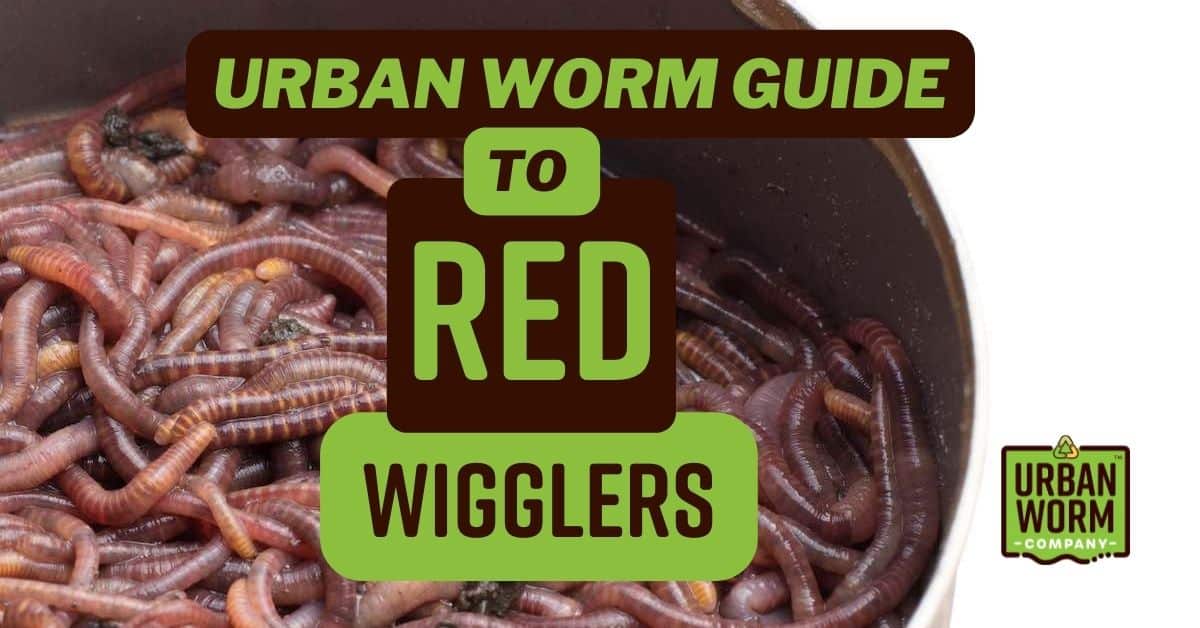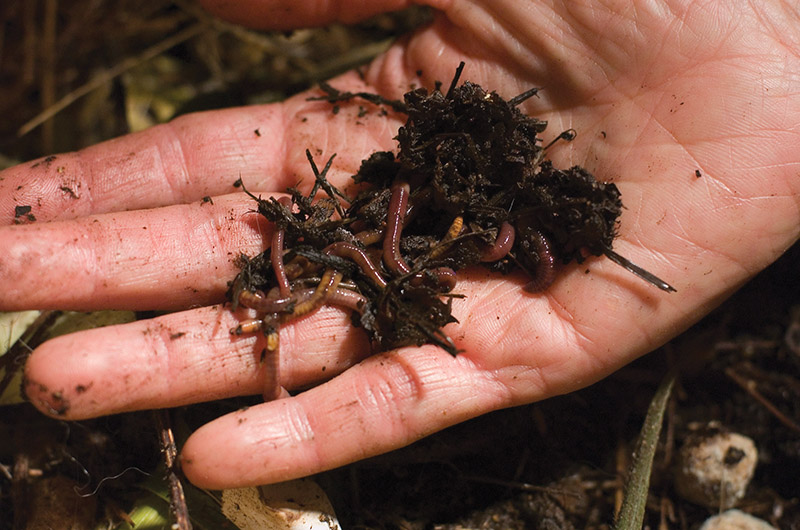Organic Composting with Red Wiggler Worms - Increase Your Garden's Development
Organic Composting with Red Wiggler Worms - Increase Your Garden's Development
Blog Article
Red Wiggler Worms Demystified: Unlocking the Keys of Vermiculture for Greener Living and Nutrient-Rich Soil
In the realm of lasting practices for improving dirt top quality and advertising eco-conscious living, red wiggler worms play a crucial yet frequently ignored duty. These humble creatures possess the remarkable ability to transform natural waste into nutrient-rich castings that offer as a powerful all-natural plant food. By diving into the world of vermiculture, one can discover a huge selection of benefits that extend much beyond typical composting approaches. Recognizing the complexities of caring for these worms, enhancing their setting, and utilizing their spreadings can result in a greener lifestyle and much healthier dirt for plants to flourish.
The Function of Red Wiggler Worms
Red Wiggler worms play a vital role in composting systems by successfully breaking down natural issue right into nutrient-rich spreadings. These starved eaters take in a range of organic materials, such as kitchen scraps, backyard waste, and paper products. As they feed, the worms' digestive procedures break down the raw material right into a fine, dark, and nutrient-dense material called worm castings or vermicompost.
The castings generated by Red Wiggler worms are highly helpful for soil health and plant development. They are abundant in important nutrients like nitrogen, potassium, and phosphorus, which are important for supporting healthy and balanced plant advancement. In addition, worm spreadings contain helpful microbes and enzymes that assist boost dirt structure, increase water retention, and improve nutrient uptake by plants.
Advantages of Vermicomposting

Moreover, vermicompost, the nutrient-rich final result of vermicomposting, works as an exceptional natural plant food and dirt conditioner. It enhances soil framework, enhances soil oygenation, and increases soil moisture retention. These residential or commercial properties add to healthier plants with stronger origin systems and better resistance to diseases and parasites. Vermicompost also enriches the dirt with vital nutrients like phosphorus, potassium, and nitrogen, promoting plant growth and total soil fertility.
In addition, vermicomposting supports lasting horticulture techniques by providing a chemical-free and natural choice to synthetic plant foods. Red Wiggler Worms. This ecologically friendly approach not only enhances the dirt but likewise helps in reducing reliance on unsafe chemicals, promoting a greener and extra lasting means of gardening
Establishing a Worm Container
When establishing a worm container for vermicomposting, correct configuration is critical to ensure the success of the composting procedure. The very first step in setting up a worm container is selecting a suitable news container. This can be a see page plastic bin or wood box that provides adequate area for the worms to walk around and has correct water drainage holes to protect against waterlogging. Next off, a bedding material such as shredded paper, cardboard, or coconut coir should be included in the bin. This bed linen gives a comfortable setting for the worms and aids maintain dampness levels.
After adding the bed linen, introduce the red wiggler worms to the bin. The worms must then be supplied with food scraps such as fruit and veggie peels, coffee premises, and eggshells.
Frequently keep track of the dampness levels and temperature in the worm container to make sure optimal conditions for the worms. With correct arrangement and upkeep, the worm bin will effectively transform organic waste into nutrient-rich compost for your plants and garden.
Harvesting Worm Castings
To effectively gather nutrient-rich worm spreadings from your vermicomposting system, a systematic harvesting method is necessary. When it comes time to gather the worm castings, there are a couple of key steps to follow to make certain an effective process. First of all, quit including fresh food scraps to one side of the worm container for a couple of weeks prior to harvesting. This encourages the worms to migrate to the side with fresh bed linen and food, making it less complicated to scoop out the spreadings from the opposite side.

Troubleshooting Common Issues
Identifying and dealing with common challenges that might emerge throughout the vermicomposting process is vital for keeping a healthy and efficient worm container. Adding excess food scraps can lead to a build-up of dampness and acidity in the worm container, possibly damaging the worms. Another concern is unpleasant smells originating from the look at this now worm container.
In addition, if the worm populace is decreasing or the worms show up harmful, maybe because of environmental stressors such as extreme temperatures or pH degrees. Keeping an eye on these variables and making necessary changes is essential for the health of the worms. By repairing these common issues quickly, vermicomposters can guarantee a effective and smooth vermicomposting process while maintaining a flourishing worm population.

Final Thought
Finally, red wiggler worms play an important duty in vermiculture by breaking down raw material into nutrient-rich soil. The advantages of vermiculture include greener living and boosted soil quality. Establishing a worm bin is vital for effective vermiculture, and gathering worm spreadings offers useful garden compost for gardening. By recognizing and troubleshooting usual problems, people can open the keys of vermiculture for lasting living and healthier dirt.
As they feed, the worms' digestion procedures damage down the organic matter into a penalty, dark, and nutrient-dense product recognized as worm castings or vermicompost.
The castings produced by Red Wiggler worms are highly valuable for soil health and plant growth. Adding excess food scraps can lead to an accumulation of dampness and level of acidity in the worm bin, possibly hurting the worms.In addition, if the worm populace is declining or the worms appear harmful, it might be due to ecological stressors such as severe temperature levels or pH levels. Setting up a worm bin is essential for successful vermiculture, and gathering worm castings provides beneficial compost for gardening.
Report this page